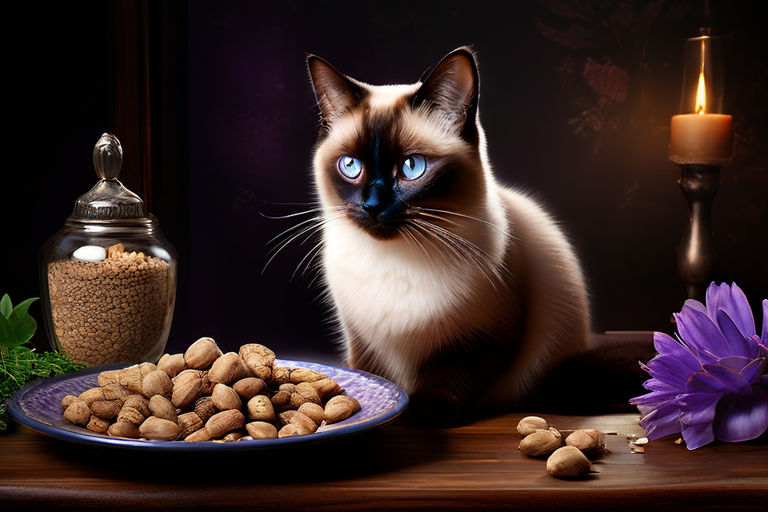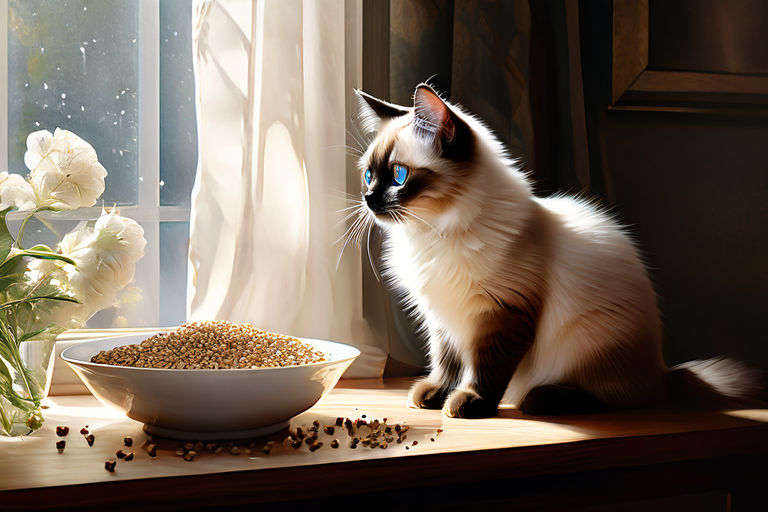Siamese Cat Diet: Nutrition Tips for Your Talkative Friend
Introduction
Siamese cats are known for their striking blue eyes, sleek bodies, and vocal personalities. As one of the most recognizable and beloved cat breeds, ensuring they receive the best nutrition is crucial for their health and longevity. This article will explore the optimal dietary choices for Siamese cats, helping you keep your feline friend healthy and happy.
Understanding Siamese Cat Nutritional Needs
Siamese cats have unique dietary requirements that must be met to maintain their health. They require a balanced diet rich in proteins, fats, vitamins, and minerals. Proteins are particularly essential as they support muscle development and overall growth. Healthy fats provide energy and support a shiny coat, while vitamins and minerals ensure proper bodily functions.
Best Types of Food for Siamese Cat Diet

- High-Quality Commercial Cat Food: Opt for premium brands that list real meat as the primary ingredient. Avoid products with fillers like corn, wheat, and soy.
- Wet vs. Dry Food: Wet food is excellent for hydration and typically has higher protein content, while dry food is convenient and helps maintain dental health. A mix of both can provide balanced nutrition.
- Homemade Diet Options: If you prefer preparing food at home, ensure it’s nutritionally complete. Include high-quality proteins, healthy fats, and necessary vitamins and minerals. Consulting a veterinarian for a balanced recipe is advisable.
Recommended Ingredients For Siamese Cat Diet
- High-Protein Sources: Chicken, fish, and turkey are excellent protein sources that support muscle development.
- Healthy Fats: Omega-3 and omega-6 fatty acids, found in fish oil and flaxseed, promote a healthy coat and skin.
- Essential Vitamins and Minerals: Taurine, essential for heart and eye health, and vitamin E, which supports immune function, are vital for Siamese cats.
Foods to Avoid
- Common Harmful Foods: Foods like chocolate, onions, garlic, and caffeine are toxic to cats and should be avoided.
- Potential Allergens: Siamese cats can be prone to food allergies. Common allergens include dairy, beef, and grains. Monitor your cat for signs of allergies, such as itching, digestive issues, or ear infections.
Feeding Schedule and Portions
- Ideal Feeding Frequency: Adult Siamese cats typically do well with two meals a day, while kittens may require more frequent feeding.
- Portion Control: Overfeeding can lead to obesity, a common issue in Siamese cats. Follow feeding guidelines on the cat food packaging and adjust based on your cat’s activity level and weight.
Monitoring Your Cat’s Health

- Signs of a Well-Nourished Siamese Cat: A healthy Siamese cat will have a shiny coat, bright eyes, and good energy levels. Regular veterinary check-ups can help monitor their health.
- Common Health Issues Related to Diet: Obesity, dental problems, and urinary tract issues can often be linked to diet. Ensure your cat is eating the right food and in appropriate quantities to prevent these issues.
Conclusion
Proper nutrition is vital for the well-being of Siamese cats. By understanding their unique dietary needs and providing high-quality, balanced meals, you can ensure your Siamese cat lives a long, healthy life. Always consult with a veterinarian for personalized dietary advice and regular health check-ups.
FAQs
All images in this post were created using AI in Playground AI. See more beautiful images of pets at AI Pawsome Art